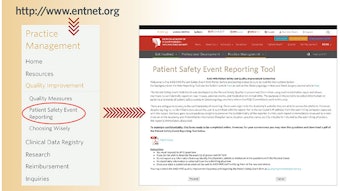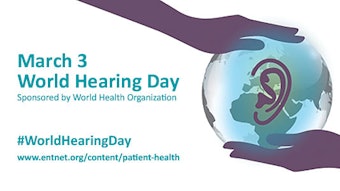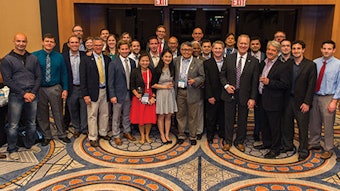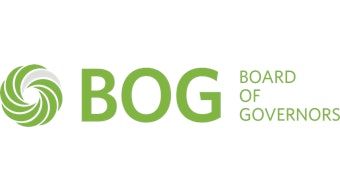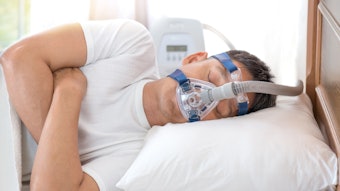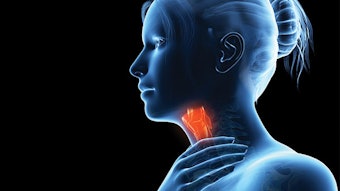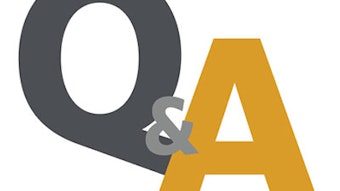Communication—Be the voice for positive change!
We live in uncertain times in this changing healthcare environment, devoid of any clearly defined direction at the federal level and with little clarity in terms of any transformational national health policy moving forward.
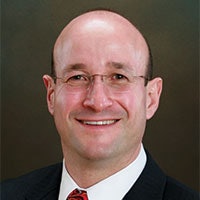 Gavin Setzen, MD
Gavin Setzen, MD
AAO-HNS/F Past President
It is clear, though, that leading in a so-called “VUCA world”—Volatile, Uncertain, Complex, and Ambiguous—the Academy will continue to serve as the watchdog and problem-solver for the practicing otolaryngologist, both in private practice and academic settings. It will remain the vital conduit between health policymakers, regulators, payers, and patients, ensuring that our interests are properly represented and our goals achieved—your effective voice!
It has also become abundantly clear that adaptive leadership is necessary under these circumstances. The role of mentorship is more important now than ever before, particularly as we seek to develop younger generations of surgeon-scientists to become leaders committed to continued education and research in pursuit of high-quality patient care.
Medicine as a profession has undergone profound change during the past several years, and regulatory burdens and other obstacles to providing care on a daily basis continue to mount. The doctor-patient relationship, the core and the essence of why each of us pursued the healing arts, is under challenge and is slowly being eroded. This has caused incremental increases in pressure on clinicians, resulting in deterioration in physician wellness and resilience, essential elements impacting patient outcomes, physician satisfaction, workforce, and a variety of other aspects of healthcare provision. These issues are being actively addressed by the AAO-HNS.
As practicing physicians, we are required to deal with issues of regulation, socioeconomic factors related to care provision, health policy, and many other realities of contemporary medical practice. At the same time, we have an obligation to refocus our attention on the physician-patient relationship, and the sanctity of that unique relationship.
It is very easy today for one to become distracted by the plethora of “non-patient,” “non-clinical” demands on one’s time and to divert one’s attention to “checking the boxes” necessary to get through the day. Let us not lose sight for one moment of the reason that we sought to pursue a life and career in medicine … the unique gift, the privilege, and the ability to impact individuals, their families, and loved ones on a daily basis, in the moment, and for a lifetime thereafter.
As otolaryngologist-head and neck surgeons, as doctors, our obligation is to the quality and safety of patient care and indeed the vitality of our specialty. By speaking up on behalf of our patients and our colleagues, as a unified specialty with a unified voice, we can positively impact the various domains of practice, including efficiency, culture of wellness, personal resilience, and optimal patient outcomes and satisfaction.
It is increasingly important to facilitate efficiency of practice with value-added clinical work through incorporation of technology, workplace systems, and process improvement in all clinical settings to facilitate compassionate, evidence-based care for our patients.
As we celebrate World Voice Day on April 16, let your voice rise above the chaos and tumult as you continue to build a culture of wellness in your small rural private practice, clinically integrated network, or large multispecialty group, and hospital medical system. The challenges will be met, and the AAO-HNS/F will provide the support and guidance to get you there as part of the value-added proposition you count on as an engaged member … Value 4U.
Seek to maximize quality and collaboration both in your personal and professional lives, leading to a greater sense of purpose and value for both you and your patients. Through personal resilience, by ensuring your general good health, you can facilitate positive health and work behaviors among your colleagues.
In an era of machine learning, virtual reality, gamification, and the internet of things, we need to remain ever mindful that artificial intelligence cannot, should not, and must not ever replace human intelligence, human caring, and human compassion—the soul of the healing arts.
Our goal is to ensure that the AAO-HNS remains your lifelong partner—thriving, inclusive, diverse, and responsive—providing the tools to ensure professional satisfaction with meaningful patient interactions.
To paraphrase Abraham Verghese, MD, the revolution starts at the patient’s bedside, and one should never lose sight of the importance of the doctor’s touch.
Speak up for yourself, speak up for your patients, and remember…
“The practice of medicine is an art, not a trade; a calling, not a business; a calling in which your heart will be exercised equally with your head. Often the best part of your work will have nothing to do with potions and powders…”
